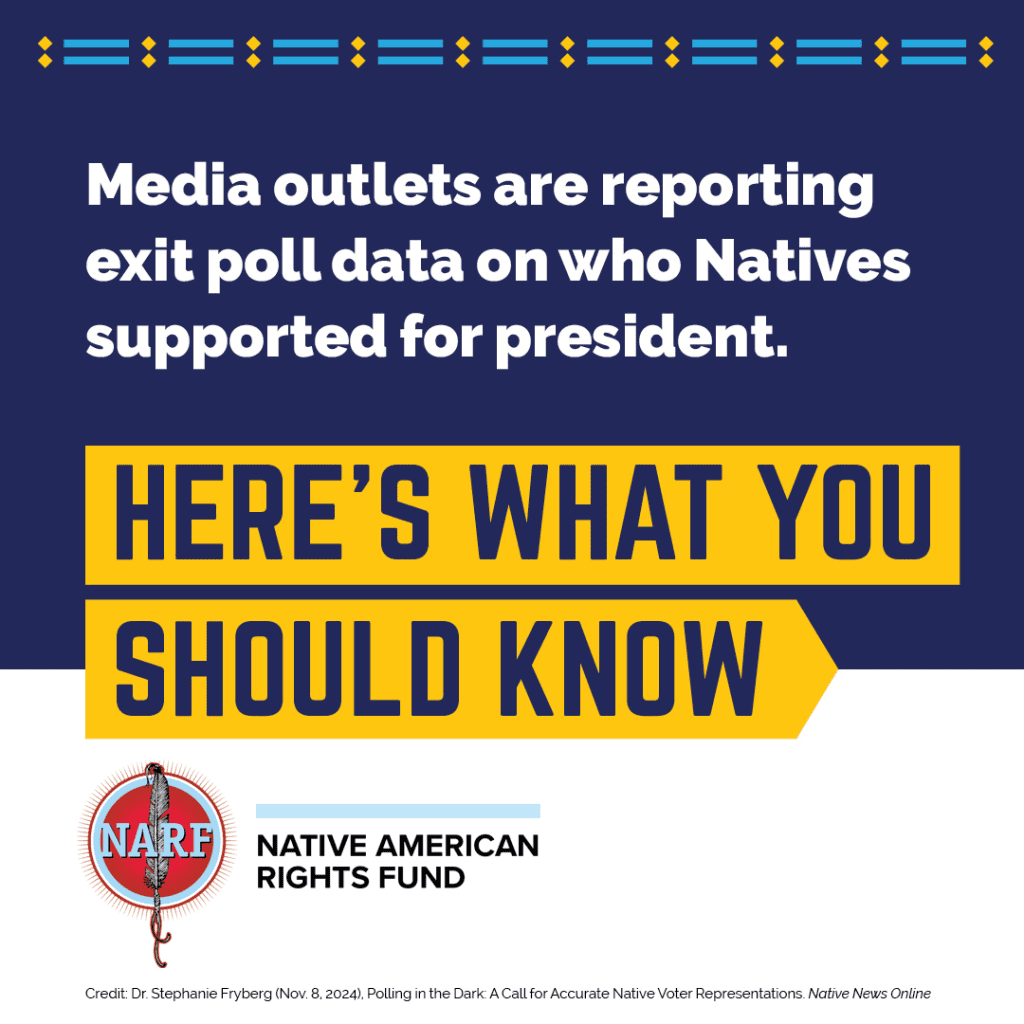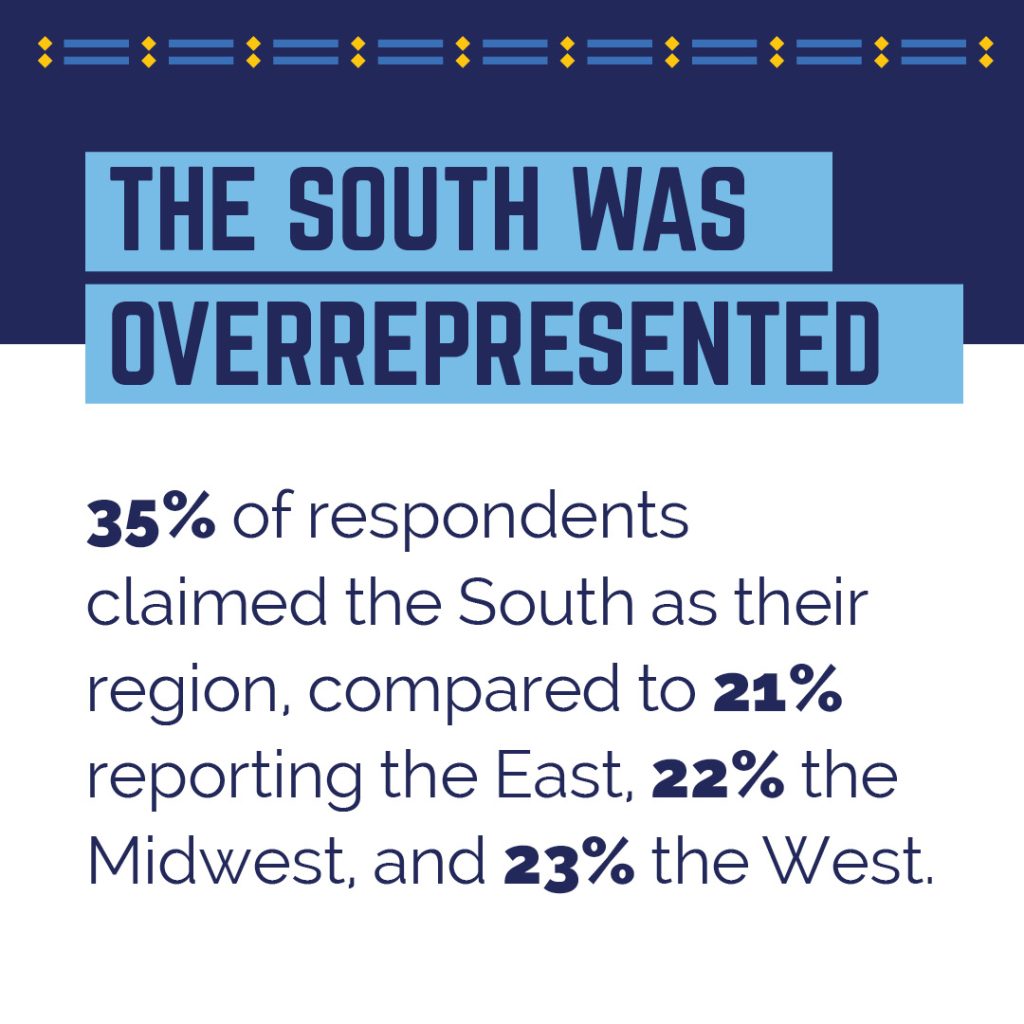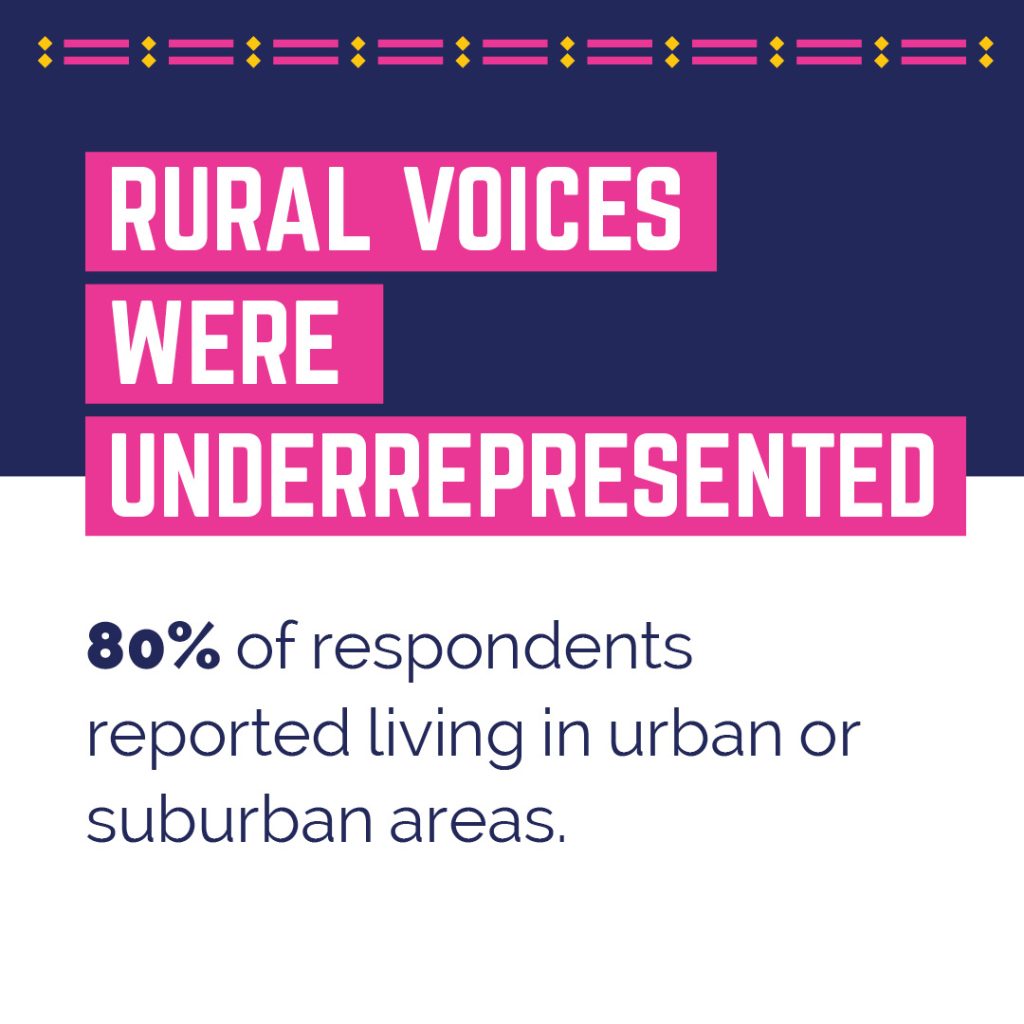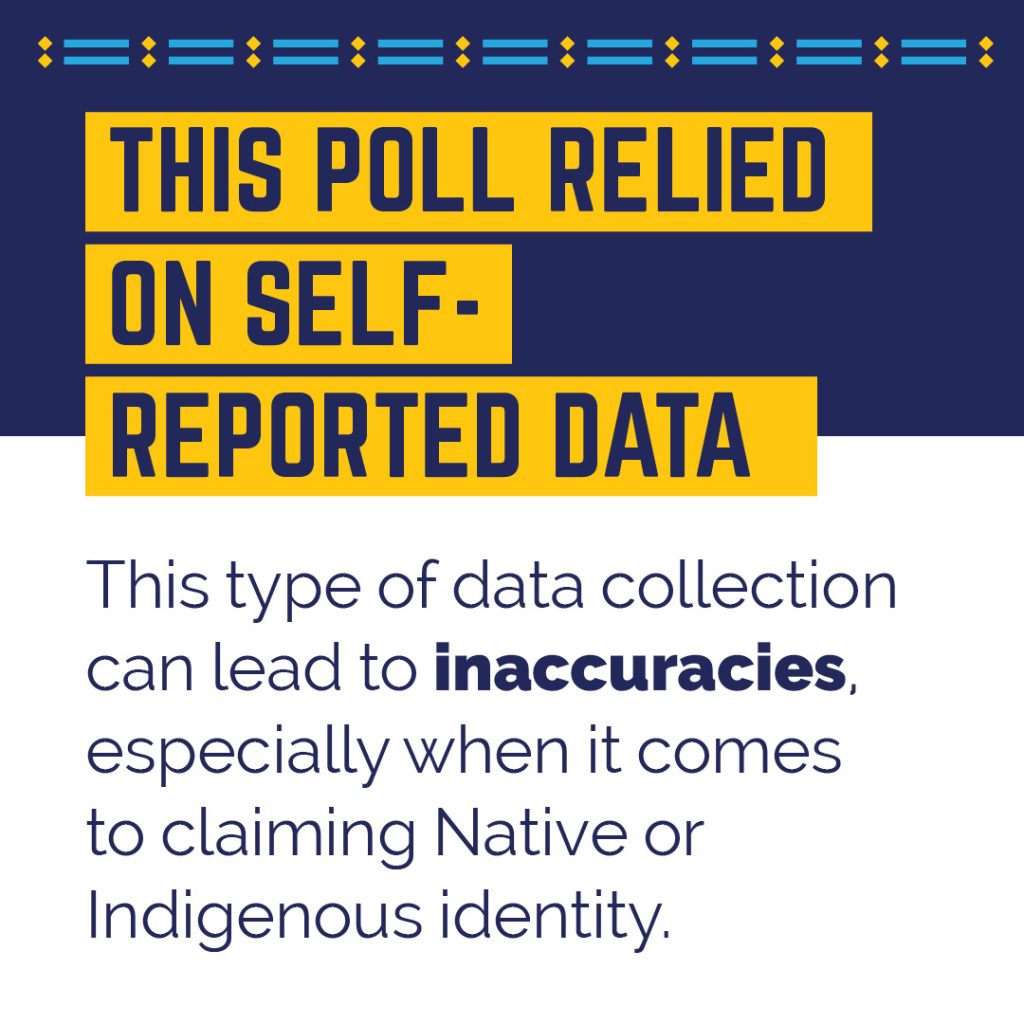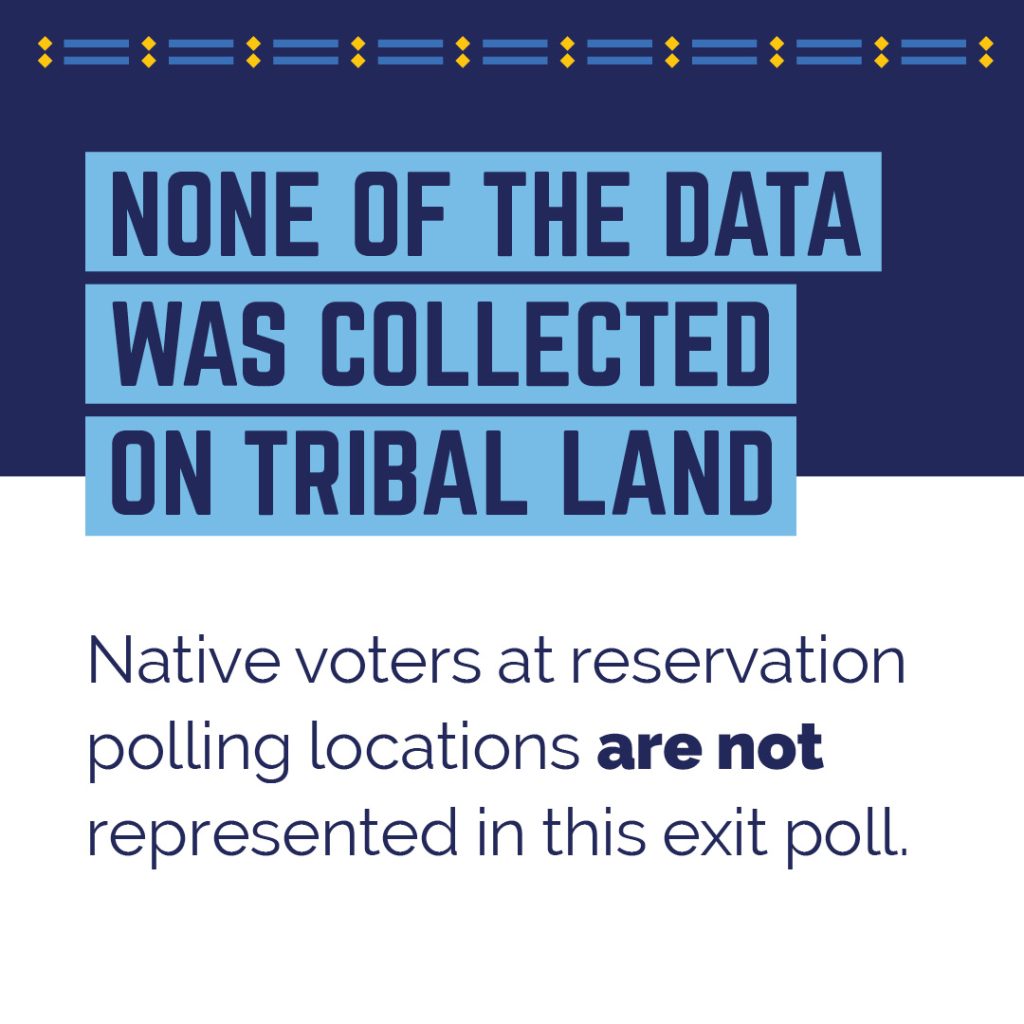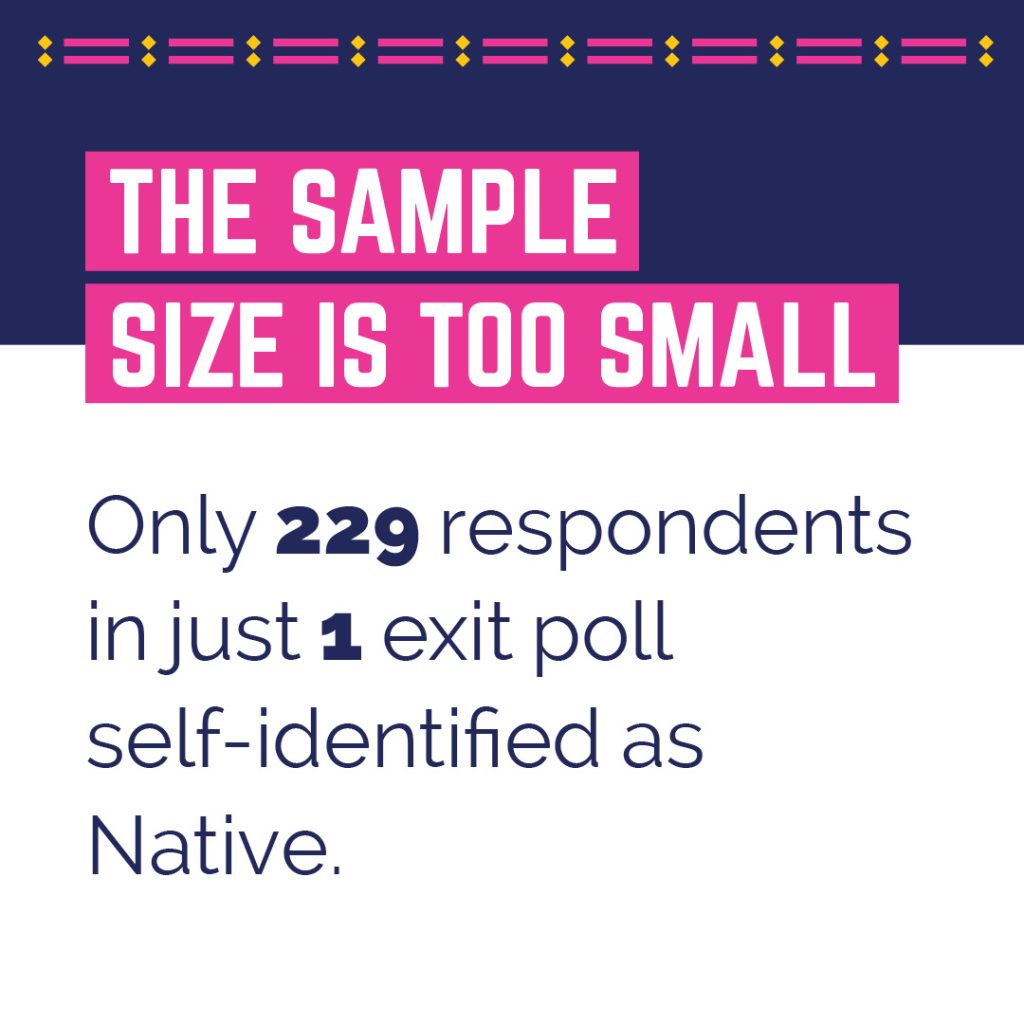Recent exit polls by National Election Pool and Edison Research included Native voter data around presidential candidate preferences. Unfortunately, the data being shared is likely an inaccurate representation of our Native communities and perspectives.
Small sample sizes, a lack of representation of people who live on reservations, and self-identification are just a few of the problems when collecting Indian Country data. One exit poll of 229 self-identified Native voters doesn’t tell the whole story of the 2024 election.
Preliminary data for state-specific outcomes indicate that often as the state based population of Native Americans increases so does the support for Democratic candidates. For example, in counties with majority Native populations, support for the Democratic candidate was larger than support for the Republican candidate in states such as Montana (67% to 28%), North Dakota (72% to 27%), South Dakota (63% to 33%), and Wisconsin (87% to 12%). Native voters are not a monolith, however, and in counties with majority Native populations in states like Oklahoma, there was a preference for the Republican candidate (63% to 37%).
These preliminary results will continue to shift as data continues to be collected and votes continue to be counted in many Western states with high Native American populations.
“It is important to gather and share accurate data about Native voter preferences, but it is equally important that we acknowledge the systemic obstacles that are keeping Native voices from being heard at all. At the Native American Rights Fund, we continue to document and battle the lack of equal opportunities to register and vote in Native communities: long distances to polling locations, inadequate housing, and no home mail delivery are still preventing Native communities from equitable voting opportunities,” said NARF Staff Attorney Jacqueline De León. “How many voters were disenfranchised this election season? How many votes were left on the table? So, yes, let’s make sure that we report out accurate numbers on the influence and power of Native voters, but let’s also make sure that we continue to work toward free and fair elections that allow Native voters to have a voice.”
